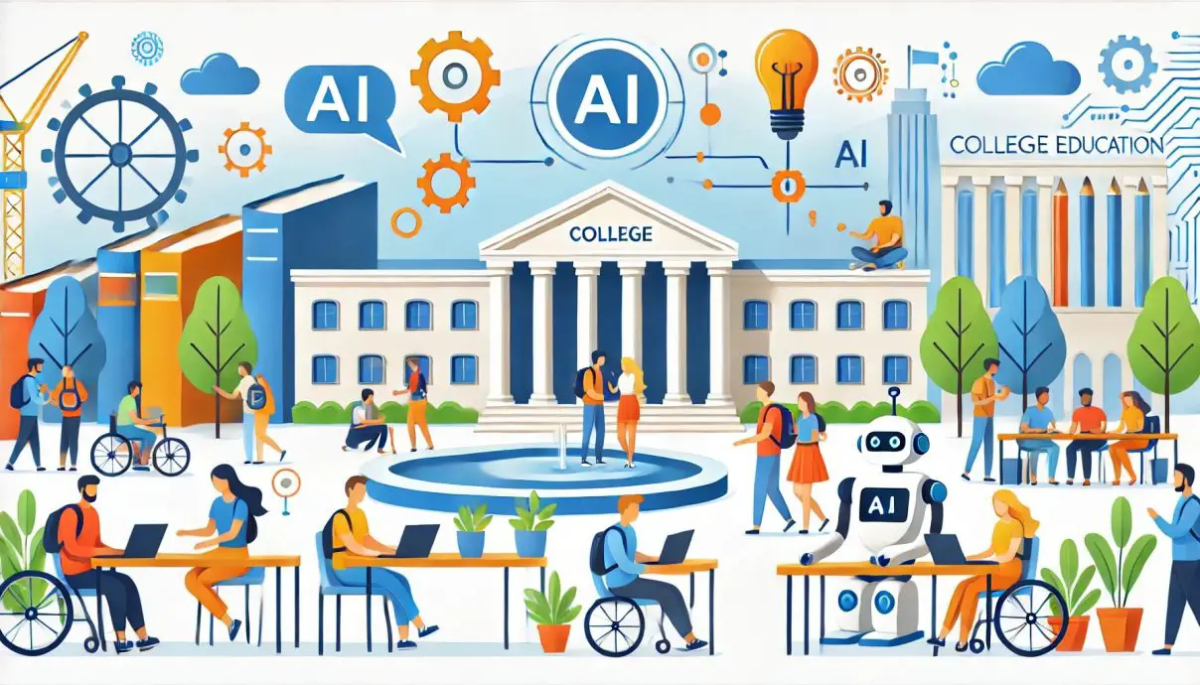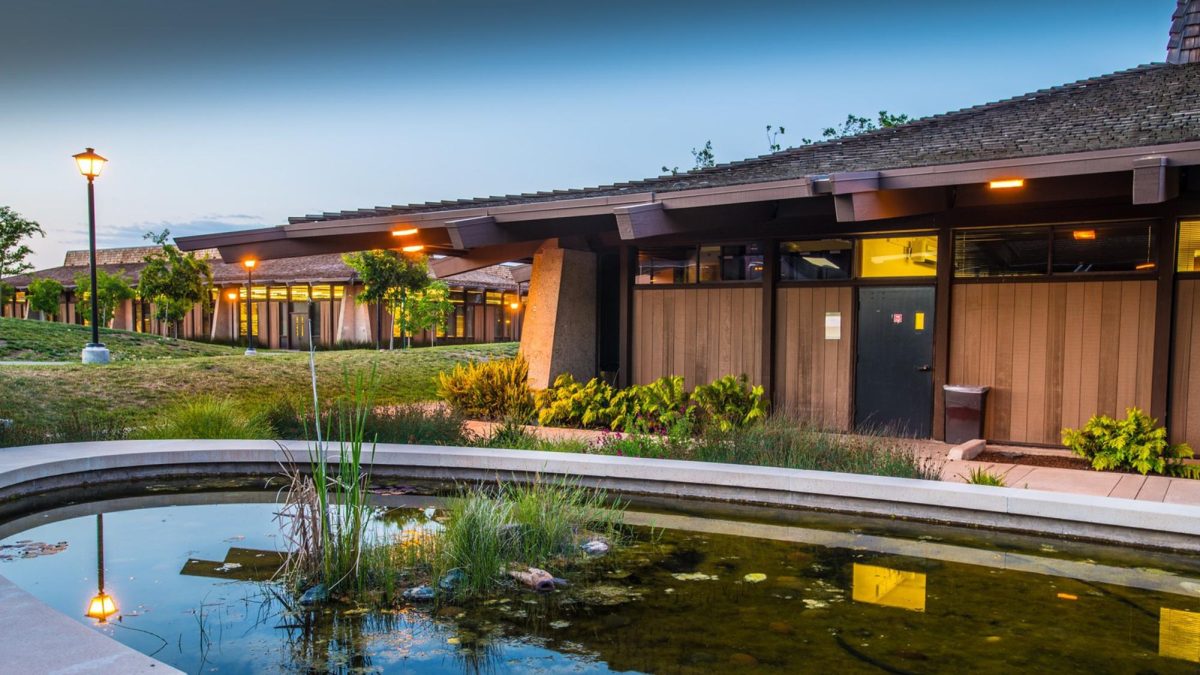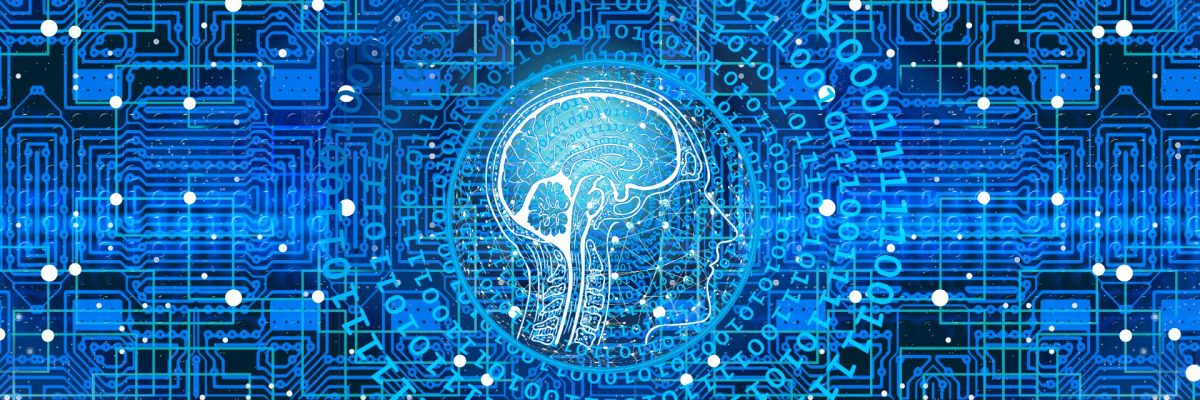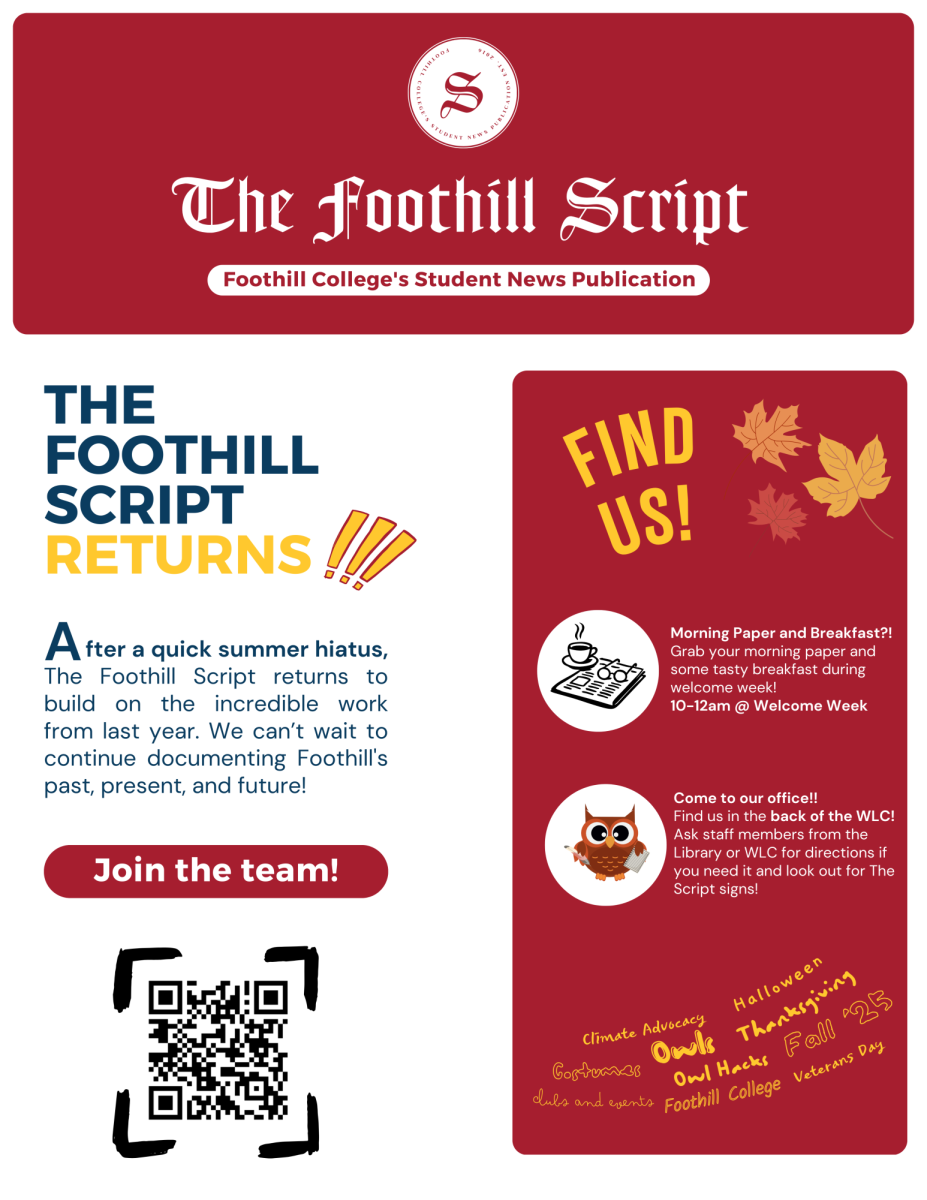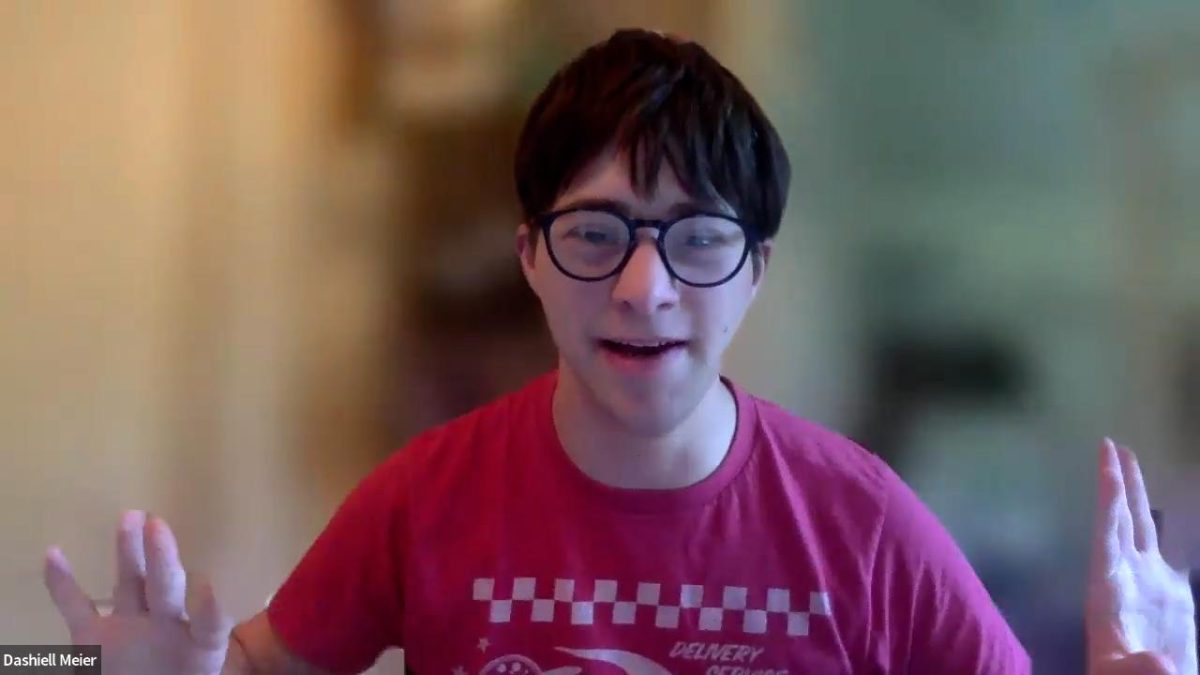Humanity has reached the next technological precipice: artificial intelligence. Suddenly, most if not all technological fields can use A.I. to accomplish a wide array of tasks from checking this essay for errors to generating code to writing complex pieces of code. A.I. is a useful tool that will support societies’ development just as the advent of cars and planes have. However, as its usage skyrockets to ten million inquiries a day, it is irrefutable that A.I. is influencing the path of humanity. Bo Shao, a philanthropist who’s taken an interest in A.I. in the last year, believes that A.I. is the instrumental tool in humanity’s evolution towards wholeness–integrating all parts of oneself and connecting to the larger whole. During my interview with Bo, we delved into his concept of wholeness and the transformative potential of artificial intelligence. Shao emphasizes that while A.I. possesses all the knowledge in the world, developers wisdom and intention will be the determining factors in its impact. He believes that the artificial intelligence community is solely responsible and capable of steering humanity towards wholeness or towards polarization.
Bo Shao, a philanthropist and investor, has been actively engaged in the field of artificial intelligence over the past year. His keen interest in A.I. has led him to study large language models (LLMs) and even develop his own simple version. As an investor, Bo Shao is not solely driven by profit; he also prioritizes making a meaningful impact on the world. Recently, as the field of A.I. has rapidly grown, Shao believes we have reached an intersection, with one road heading towards using A.I. to foster greater human wholeness and the other towards optimizing for short-term gains at the cost of long-term well-being. Shao advocates for the path that enables humanity to flourish through conscious and intentional use of artificial intelligence.
Before we can use artificial intelligence to reach wholeness, we must first define what wholeness is. Shao splits his definition into two parts: the integration of all parts of oneself, both emotional and physical, and the recognition of our connection to the larger whole. For the former, he gives an anecdote: Shao grew up in an extremely poor family during the Cultural Revolution–even eating an apple was a special occasion that occurred only once a year, and shower water had to be reused and shared. These harsh conditions caused his father to push him to the extreme, forcing him to grow out of being a child. He was constantly pushed to achieve perfection. His emotions and needs didn’t matter, only his grades and getting out of poverty. Shao was forced to deeply repress himself–so much so that he felt as though he was “simulating being a human” (Shao). For the first thirty years of his life, Shao was, on the surface, cold, harsh, and uncaring. He described this state as being unwhole–disconnected with parts of himself such as being a child, being goofy, and accepting imperfection and inefficiencies.
Then, a combination of circumstances–spiritual teachers, being a husband, a father–taught him to integrate his lost self and emotions. This integration of self was gradual, but apparent. Over the years, he became more patient and loving with his children, and he allowed the innocent and childlike part of himself to surface. His work deviated from a pure profit focus and instead shifted towards helping the world–he became whole–integrating and rediscovering himself.
The latter part of wholeness is the recognition that “every living consciousness is part of a larger whole that is intimately connected” (Shao). Through this perspective, you end up valuing others–caring about others as part of a collective instead of expendable individuals.
The geopolitical scene today is fraught with conflict and division. One way to address this is to open our hearts and empathize with others. Take the Israel Palestine conflict. The two sides are polarized, entirely focused on their own suffering or politics. If we were to recognize the humanity in each other and share each other’s suffering, we could begin to heal and work towards a more harmonious world.
In practice, it is extremely difficult to achieve either aspect of wholeness. Your own pain, sadness, and or anger often overwhelms you and blinds your ability to empathize. Another issue is that achieving wholeness can be extremely difficult–therapy, multi hour courses, and spiritual healing are all time consuming. Shao states: “Normally, people are too lazy to learn. Adults don’t finish online courses that last more than 10 minutes” (Shao). People aren’t willing to learn non-violent communication, they deem therapy as a waste of time, or, more commonly, they aren’t even conscious of the parts of themselves they repress.
This is where A.I. comes in. Artificial intelligence has removed the last technological barrier to achieving wholeness today. A.I. can customize and personalize teaching, making it more likely for people to start and continue learning. Instead of attending multi-hour courses on communication or general therapy, you can now ask A.I., “I have this particular communication challenge with my girlfriend. Can you coach me?” (Shao). A.I. allows you to reflect on yourself, much like a mirror. Just as the invention of mirrors gave people regular access to their appearance and opened humanity’s eyes to self-image, artificial intelligence can serve as a constant reminder to be your best self.
Shao gives an example of a pre-A.I. tool: handwritten reminders: before the Cultural Revolution, Shao’s father was a professor at a university. However, during the Cultural Revolution, his family lost everything–status, money, jobs, and opportunities. His father’s life was ruined, and all this anger and hate against the regime was bottled inside. Over the course of Shao’s youth, his fathers pent up anger often exploded outwards, lashing out at his wife and children. To try and mitigate the damage, he would write “control my anger” in Chinese on pieces of paper and put them up throughout the house (Shao). Back during the Cultural Revolution, there was no better tool available to help you be aware of your own self–both emotional or trauma related.
Today, we have a much more sophisticated tool: artificial intelligence. You can build an A.I. powered “pendant, watch, earpiece, or eyepiece” that, whenever you get uncontrollably angry, can remind you, “hey David, I notice your blood pressure is this level, you just said this, I suspect you are very angry. But I want to remind you of your new year’s resolution … get in touch with this anger at the body level” (Shao). This level of wholeness focuses on becoming aware of the anger instead of reacting to anger. The most common crimes are crimes of passion,not premeditated ones. Being aware of your tendencies, conscious of your emotions, and willing to change, combined with the tools at hand, is more than enough to avoid irrevocable bursts of anger against your family–or even a night in a prison cell.
Previously, having a personalized device to respond to your needs and emotions was impossible. Now, A.I. can give you advice based on your best self. It can help you, in every moment, love your children, control your anger, or improve your communication skills. A.I. has the potential to end passion induced conflicts in all genres.
However, just as A.I. has the potential to change the world for the better, it also has the power to entirely reprogram us. For example, social media and news algorithms are blunt tools designed to suggest content that will keep users engaged. Humans tend to prefer consuming information that aligns with their existing beliefs, and these algorithms amplify this tendency, leading to increased polarization. A.I. is a thousand times more powerful and nuanced than the algorithms currently in place.
We stand at a crossroad–A.I. can give you advice and help you communicate based on your best self, or, you can program A.I. to be machiavellian, only focused on giving you power and what you think you want. Bo Shao articulates, this crossroads offers “a choice–either you make the choice or it will be made for us” (Shao).
Take gene editing. It could be used to change society for the better–by growing empathy centers in the brain such as the anterior singular cortex and therefore increasing collaboration–or, it could turn us into cold selfish calculating beings by removing the anterior insular cortex altogether. Without mindful development of new technologies, the world could spiral into heartless babies, deadly pathogens, or a zombie outbreak. Thankfully, there are rigid laws on gene editing.
Shao’s fear is that a large part of the world may choose short-term gratification in lieu of long-term happiness. Just like in gene editing, with A.I., we have the choice to program ourselves towards wholeness or towards polarization. What is our intention? Is it to gain more power, to convince the world that we’re right, or to achieve ultimate happiness and fulfillment? Shao worries that many will prioritize immediate rewards such as wealth and power over lasting well-being through connection and wholeness, leading to detrimental consequences for humanity. While using A.I. to end passion-induced conflicts is beneficial, these positive changes can be overshadowed if purposeful manipulation and premeditated harm prevail. The temptation for quick gains could drive the development of A.I. towards exploiting human vulnerabilities and amplifying biases. Without a conscious effort to prioritize wholeness, we risk creating a machiavellian future.
The divergence of these two paths cannot be overstated. If A.I. continues down the path of polarization, it will have a far greater impact than the relatively simple search algorithms in place today. On the other hand, if it is programmed with the wholeness of the collective in mind, humanity will teach itself to value one another and “steer towards being more and more whole” (Shao).
Bo Shao recognizes the immediacy of the issue; even now, A.I. is branching out faster than any one person can keep track of. The new possibilities offered by A.I. provide an incredible opportunity for society to become whole. Through my interview with him, Bo Shao hopes to encourage A.I. designers to enable the wholeness of humanity to flourish.

